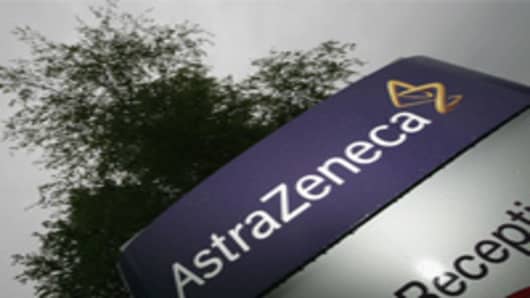If you're left-handed, bowl with your right, eat red licorice, but only on Sunday afternoons, are female under 24-and-a-half years old or male over 33-and-three-quarters and loved "Dances With Wolves," then our drug is now approved for you to take.
That was kind of my flippant takeaway from the head-spinning lead paragraph (below) in AstraZeneca's press release last night about the FDA okay of its cholesterol drug Crestor for a broader patient population.
"AstraZeneca today announced that the US Food and Drug Administration (FDA) has approved CRESTOR (rosuvastatin calcium) to reduce the risk of stroke, myocardial infarction (heart attack) and arterial revascularization procedures in individuals without clinically evident coronary heart disease but with an increased risk of cardiovascular disease (CVD) based on age (men ?50 and women ?60), high-sensitivity C-reactive protein (hsCRP) ? 2 mg/L, and the presence of at least one additional CVD risk factor, such as hypertension, low HDL-C, smoking, or a family history of premature coronary heart disease."
Huh? What's that? Come again? I can just hear a patient saying after reading that, "Does that mean me? I hope my doctor can help me make sense of this."
Reporters quickly regurgitated all that medical gobbledygook in language laypeople could easily understand:
Associated Press: "Federal regulators have granted AstraZeneca approval to market its cholesterol pill Crestor as a preventive measure against heart attack and stroke in patients with healthy cholesterol levels."
Dow Jones: "...the FDA Monday said it (Crestor) can now be prescribed to prevent heart disease in people with apparently normal levels of bad cholesterol but other risk factors for heart disease, including elevated blood levels of a protein linked to heart disease."
Reuters: "AstraZeneca won U.S. approval on Monday to promote cholesterol fighter Crestor for preventing heart disease in a vast new market of people with healthy cholesterol but other heart risks."
I get that drug companies have to mind their p's and q's with the FDA and don't want to talk down to an audience of prescribing physicians, but they can still speak English. And in an era, for better or worse, when so many more patients are getting their medical information on Web sites and through social media, drug approval press releases—especially ones for a drug as widely-used as Crestor—need to be clear and concise.
You can still do all of the FDA-mandated prescribing details, please just don't put it at the top.
Analyst opinions on the expanded Crestor approval are mixed. Some say the bigger issue for AZN is the looming Crestor patent challenge.
As I write this, the stock is the biggest dollar and percentage gainer in big pharma, but it's already off the highs of the morning.
UPDATE: The Food and Drug Administration issued a press release on the additional Crestor approval a day late, but the agency's announcement is much better written than the company's.
If the FDA can put it in plain English, why can't AstraZeneca?
- Read the Full AZN Release Here
- Putting the Zen in AstraZeneca
Questions? Comments? Pharma@cnbc.com and follow me on Twitter at mhuckman


